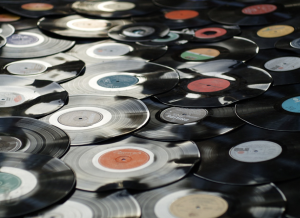Music to Your Ears: the Benefits of Playing an Instrument
There’s Always a Chance to Begin—South High’s music program offers introductory courses to various musical instruments, as well as the chance to participate in band, orchestra, or chorus, for more experienced singers and musicians. Pixabay
January 24, 2022
Music, it seems, is at the heart of all good things. Playing an instrument can make you smarter, more attentive, more dedicated, even more attractive—all depending on who you ask. And although some of the many benefits attributed to playing music may be overblown or misplaced, most of them aren’t. The act of engaging with anything creatively, and especially music, activates a part of your brain that academics often ignores, resulting in a plethora of positive results, from a stronger immune system, to an overall sense of ease, and everything in between, across all skill levels.
One of the most commonly heard refrains is that playing music lowers anxiety and depression, that music offers an escape from our busy and worry-filled lives. A study published in the National Center for Biotechnology Information found that playing an instrument, even for fun at the most basic level, released dopamine and improved participants’ moods and memory functions, positively stimulating their brains. Music improves neural plasticity—defined as your brain’s ability to react to stimuli—keeping neural pathways active. “What [music programs] offer is a release. It offers, hopefully, a period of time where students can decompress, destress, just enjoy making music, expressing themselves, and, really, lowering that stress level, that anxiety level that they have,” said music department chairperson, Mr. Michael Schwartz. No matter your skill level, playing an instrument can be a reprieve from the stressful world of academics, especially in a school as competitive as ours.
Although the joys of music should be enjoyed for their sake alone, students who play instruments tend to perform better in school when compared to their peers who do not. This difference is reflected in SAT scores; a summary of SAT scores released by CollegeBoard in 2012 showed that, on average, students who took at least one music class in high school scored around 150 points higher than their peers who did not. These students performed better especially in the reading and writing sections—no big surprise considering how learning to read and play music is similar to learning a language. “For students that [play an instrument] for a prolonged period of time—if they’re starting in the third grade or the fourth grade and they take it all the way through high school—[playing an instrument] does help their retention, their reading,” said Mr. Schwartz. In addition to reading the different clefs, or musical “languages,” many compositions aren’t written in English, familiarizing students with, and encouraging them to learn, other languages such as German or Italian.
While the task of learning to play an instrument may seem insurmountable at first, many resources are available for those looking to learn. The internet, for one, is a great tool for people looking to learn an instrument, alongside method books and introductory courses we are fortunate enough to have access to here at South. The music department offers introductory guitar and piano classes for beginners, as well as music theory and music technology classes for students who are looking to get into music.And for students who have played instruments in the past but were unable to continue, an open invitation to rejoin stands. “All they have to do,” said Mr. Schwartz, “is see either myself for band or orchestra, or Dr. Robinson for vocal, and we can talk to them, see whether they need a certain level, do a basic check on their playing or their singing, to see if they meet the minimum standard, and if they do, they can come right back.”
Even if you don’t plan on going into music as a career, many people continue to play instruments past high school, because of the numerous psychological and physiological benefits music offers. Playing an instrument may seem foreign if you’ve never attempted it, and learning how to go about understanding it may seem almost impossible, but it is worth it in the end. “It’s never too late to begin to play an instrument,” said Mr. Schwartz, “Even if you never learned to play an instrument, or you learned it, and then haven’t done it for years, you can definitely come back.”







